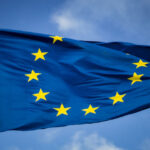
EFRAG welcomes the adoption of the Delegated Act on the first set of European Sustainability Reporting Standards (ESRS) by the European Commission on 31 July 2023 and expresses its gratitude to all of those that contributed to this milestone. EFRAG is committed to the success of ESRS and is working toward the next steps: implementation guidance, ESRS for SMEs and sectors.
Adoption of ESRS by Delegated Act is mandated by the co-legislators in the Corporate Sustainability Reporting Directive (CSRD – Directive (EU) 2022/2464) adopted in December 2022.
The twelve ESRS provide a proportionate but comprehensive coverage of sector-agnostic, environmental, social and governance matters. The adoption by the European Commission of this first set of ESRS constitutes a milestone for relevant and comparable sustainability reporting on companies’ impacts on people and environment, and on sustainability-related financial risks and opportunities for companies.
The European Commission’s adoption of ESRS is the outcome of a thorough process which started already in September 2020. EFRAG is proud to have fully played its part in this process, in particular with its preparatory work report submitted to the European Commission in February 2021, the launch of its public consultation on Exposure Drafts of ESRS in April 2022 and its Technical Advice to the European Commission on the final draft standards delivered in November 2022. EFRAG takes this opportunity to thank the many contributors from its Sustainability Reporting Board (EFRAG SRB), its Sustainability Reporting Technical Expert Group (EFRAG SR TEG), its Secretariat and the initial Project Task Force, that have made all this possible. It has been a real technical and organisational challenge, but now we can all say “mission accomplished”.
EFRAG is also conscious of the challenges ahead and is fully committed to the overall success of sustainability reporting based on ESRS in the European Union and globally. EFRAG is currently making major efforts to develop standards for SMEs and to prepare guidance to foster implementation, interoperability of ESRS with overlapping ISSB standards as a contribution to joint work with the ISSB, and interoperability of ESRS with other relevant international standards.
Guidance to support companies in the practical application of ESRS facilitates meaningful and comparable sustainability reporting. During its 23 August public session, the EFRAG SRB will receive an update on the first draft EFRAG Implementation Guidance and FAQ regarding materiality assessment (MAIG) and value chain (VCIG). Related papers will be posted on or before 16 August 2023. In addition, the EFRAG SRB and EFRAG SR TEG will consider the responses to the European Commission’s consultation for feedback on the Have Your Say portal on the draft ESRS to identify priority areas for further guidance. Moreover, EFRAG will establish shortly a single access point on its website for ESRS application questions from stakeholders.
EFRAG’s goal has been since the beginning to build on and contribute to the global progress of sustainability reporting as well as to avoid multiple reporting for EU preparers and users. In its 23 August 2023 public session, the EFRAG SRB will receive an update regarding interoperability with other major standard setting initiatives. In this context the SRB commends the excellent progress regarding interoperability between the ESRS adopted by the European Commission and the ISSB standards published in June (IFRS S 1 and S 2). The SRB will receive an update on the positive outcome of joint efforts to foster straight-forward interoperability of ESRS and ISSB climate related standards. The approval of a joint statement by EFRAG and the GRI of interoperability between the GRI standards and the ESRS acknowledging a high level of commonality and the possibility for ESRS reporting entities to report with reference to GRI will also be submitted to the EFRAG SRB. The related papers can already be accessed here.
Finally, the SRB is happy to report excellent progress regarding the SME standards both for listed SMEs (LSME) and for other SMEs (VSME), the latter being for voluntary use. The work on sector standards continues, however further guidance on the revised timeline is expected from the European Commission in Fall.
Patrick de Cambourg, Chair of the EFRAG SRB, commented: “With the CSRD and now the Delegated Act on sector agnostic ESRS, we are delighted to acknowledge such a critical step towards the objective of placing sustainability reporting on an equal footing with financial reporting. Quality sustainability-related information is indeed key to transparency and decision-making. We are proud of this contribution to the European Union policy objectives and to the progress of sustainability reporting globally. Now we will make every effort to facilitate implementation and make ESRS a success.”
Chiara del Prete, Chair of the EFRAG SR TEG, said: “Robust standards are the cornerstone of quality reporting. With the dedication of our team under our multi-stakeholder approach and our due process we are extremely honoured to have successfully contributed so far to the embedding of sustainability reporting standards into the European Union legal framework as required by the CSRD. We look forward to the next steps, in particular by providing user-friendly implementation guidance and focusing on standards for SMEs“.
Hans Buysse, President of the EFRAG Administrative Board, stated: “Organisationally we put EFRAG under high tension to deliver high-quality draft ESRS timely to the European Commission. It not only took amazing efforts from our SRB, our SR TEG, but also from our people in the Secretariat and the initial Project Task Force to make this happen. In order to allow adequate focus on sustainability reporting, we first established a sustainability reporting pillar in addition to the financial reporting pillar into EFRAG’s governance structure. The two-pillar structure is fully operational and overseen by the EFRAG Administrative Board. EFRAG will continue to strengthen its role as the European voice in corporate reporting and enhance its thought leadership in this domain while being influential at the global level.”


